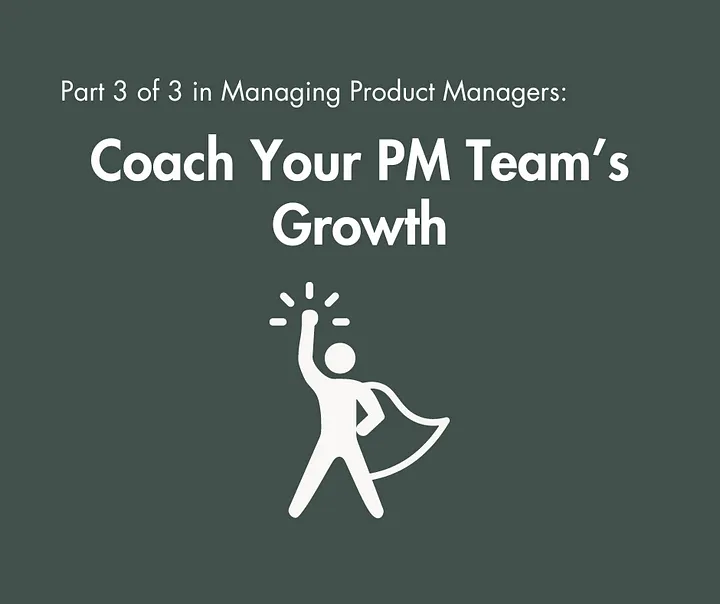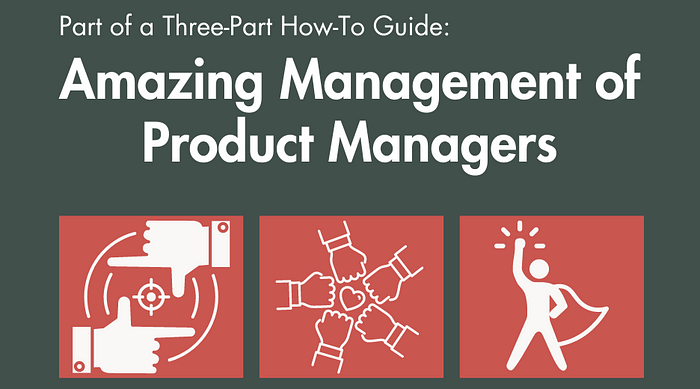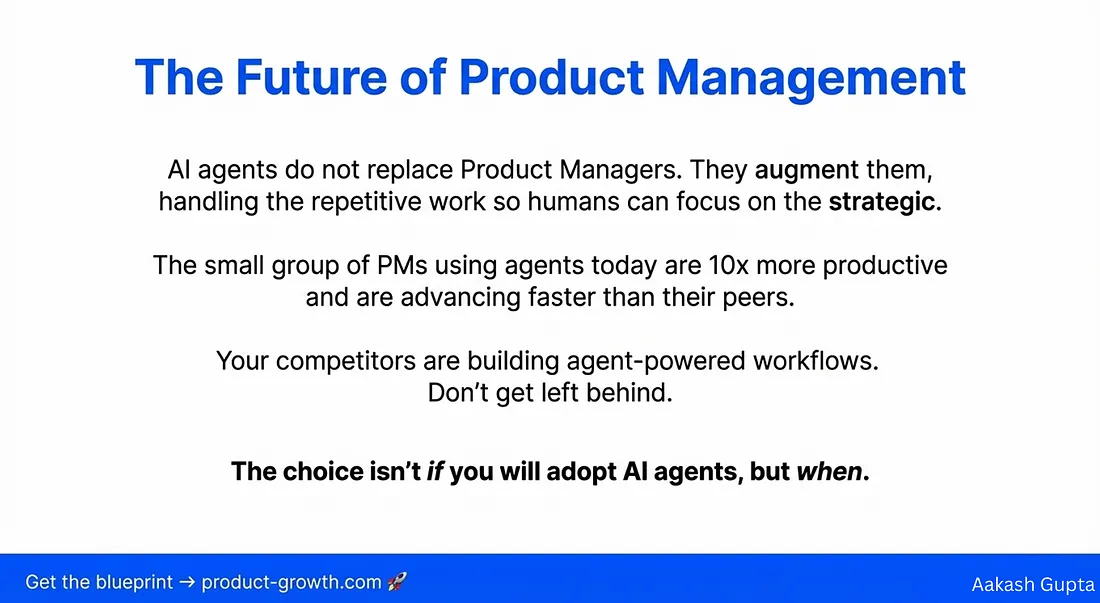
Managing Product Managers Part 3 of 3: Coach Your PM Team’s Growth
How to be an absolutely badass manager of product managers. Whether you’re the CTO, CPO, founder, or GPM, focus on these 3 pivotal areas to ensure your PMs thrive.
Hey there, PM whisperer! Welcome to the final installment of my 3-part series on managing product managers. If you missed the previous parts, be sure to check them out for strategies on helping your PMs focus on the right things and setting them up for autonomy. Today, we’re diving into the crucial topic of coaching your PMs’ growth.
Great product managers aren’t born; they’re developed. As a leader, your role extends beyond day-to-day management to nurturing each PM’s unique potential. Think back to your favorite coaches throughout your life — what worked well with them and how can you apply that to your team? Let’s explore how to cultivate a growth-oriented environment where your PMs can flourish, innovate, and drive your products to new heights.
💃 Part #3 of 3: Coach Their Growth
Think back to your favorite coaches throughout your life, what worked well with them and how can you apply that to your team?
Great product managers aren’t born; they’re developed. As a leader, your role extends beyond day-to-day management to nurturing each PM’s unique potential. This section explores how to cultivate a growth-oriented environment where your PMs can flourish, innovate, and drive your products to new heights.
To Coach Your PM Team’s Growth We’ll Cover:
- 💗 Hone the Soft Skills
- ⚖️ Support Individual Strengths
- 🔁 Foster Continuous Feedback & Growth
- 📚 Support Continuous Learning
- 📣 Be Their Cheerleader
- ⚠️ Beware the Weight of Your Words
🚩 Red Flags That This Isn’t Going Well..
- PMs consistently miss deadlines or fail to meet objectives without understanding why.
- PMs seem hesitant to take risks or try new approaches in their work.
- PMs rarely seem to offer constructive feedback to each other or to other team members.
- PMs struggle to communicate effectively with stakeholders from other departments.
- PMs frequently express feeling overwhelmed or burnt out.
- PMs seem resistant or defensive to feedback.
- There’s a high turnover rate among your product management team.
💗 Hone the Soft Skills
Values and empathy are foundational for all leaders. They form the bedrock upon which all other soft skills are built. Empathy, in particular, is essential for understanding team dynamics, stakeholder needs, and ultimately, your users. While technical skills are crucial, it’s often the soft skills that set great PMs apart.
Try this:
- Cultivate empathy and emotional intelligence: Teach PMs to truly listen and understand the perspectives of team members, stakeholders, and customers. Encourage them to consider the emotional impact of their decisions and communication.
- Master trust and delegation: Guide PMs in providing clear expectations and then stepping back, trusting their team to deliver.
- Develop adaptability and flexibility: Expose PMs to different parts of the business to broaden their perspective. Encourage them to embrace change and see it as an opportunity for growth and innovation.
- Enhance communication skills: Provide training on clear, concise, and persuasive communication. Encourage PMs to tailor their communication style to different audiences and practice giving and receiving constructive feedback.
- Foster leadership abilities: Help PMs understand how to influence without authority, a crucial skill in their role. Teach conflict resolution skills and how to navigate difficult conversations. Encourage them to look for win-win solutions.
⚖️ Support Individual Strengths
Recognize that each PM has unique strengths and areas for growth. For example, I excel in user research but benefit from partnering with data scientists for data analysis. A diverse team with varied strengths can tackle complex challenges more effectively. Your role is to harness these individual strengths for the benefit of the team and product. Tailoring your support to individual needs maximizes productivity and job satisfaction.
Try this:
- Identify individual strengths: Work with each PM to understand their core competencies and areas where they excel.
- Customize responsibilities: Where possible, align PM responsibilities with their strengths while providing opportunities for growth in other areas.
- Provide targeted resources: Offer training, mentorship, or tools specific to each PM’s development needs and your organization’s focus.
- Encourage skill-sharing: Create opportunities for PMs to teach their strengths to others, fostering a culture of continuous learning. Consider pairing PMs with team members who have complementary skills. For example, a PM strong in technical knowledge might partner with someone skilled in market research.
- Manage role breadth: While PMs can excel in many areas (communication, analysis, user research), they can’t do it all simultaneously. Ensure responsibilities are balanced across design, engineering, data, and the other roles in your organization to prevent burnout. [I LOVE the Roles & Responsibilities process for this!]
🔁 Foster Continuous Feedback & Growth
Creating a culture of continuous feedback is crucial for PM development. It helps maintain alignment, encourages self-reflection, and drives ongoing improvement. Feedback should always be rooted in a constructive desire for growth, rather than a criticism.
Try this:
- Regular check-ins: Schedule brief, frequent one-on-ones to discuss progress, challenges, and provide timely feedback. Use these sessions to actively listen and brainstorm solutions.
- Encourage self-reflection: Helps PMs identify their own growth areas. During one-on-ones, I like to use reflective questions like “What has been your biggest achievement this month?” and “What challenges are you facing?”
- Implement 360-degree feedback: Gather insights from peers, team members, and stakeholders. I believe frequent and lightweight processes are so much more beneficial than only hearing feedback once per year, or worse, never.
- Data-driven reviews: Encourage PMs to incorporate product metrics and user feedback into their self-assessments. This grounds performance discussions in tangible outcomes.
- Set and adjust goals continuously: Work with PMs to set short-term goals that align with broader product and company objectives. Regularly revisit and adjust these goals as needed.
- Provide a clear path to promotion: Clearly communicate the skills, experiences, and achievements needed for career progression. This gives PMs a roadmap for their professional development.
📚 Support Continuous Learning
Fostering a culture of continuous learning is crucial for PM growth and team success. It goes beyond feedback to actively create opportunities for skill development and knowledge sharing. Even better, it fosters innovation, improves problem-solving, and helps retain top talent.
“The only thing worse than training your employees and having them leave is not training them and having them stay.” — Henry Ford
Try this:
- Provide diverse learning opportunities: Offer a mix of training methods including workshops, conferences, online courses, and internal knowledge-sharing sessions. Be open to covering costs as part of professional development.
- Encourage external exposure: Support PMs in attending and speaking at industry events and conferences. This exposure to new ideas and networking can spark innovation and personal growth.
- Facilitate peer & cross-functional learning: Set up regular sessions where PMs can share their experiences, teach their strengths to others, and learn from each other’s successes and challenges. Encourage PMs to spend time with other departments (e.g., engineering, design, marketing) to broaden their understanding of the business.
- Create an internal mentorship program: Pair senior PMs with juniors for mentorship. This not only helps junior PMs grow but also develops leadership skills in senior PMs. I helped establish this program at Trello and it was one of the most valuable parts of my career.
- Support self-directed learning: Provide resources (time, budget) for PMs to pursue learning in areas they’re passionate about, even if not directly related to their current role.
- Create a knowledge base: Encourage PMs to document and share their learnings, creating a valuable resource for the whole team.
📣 Be Their Cheerleader
Being a PM is a tough job, often with more criticism than praise. As their leader, one of your key roles is to be their biggest supporter. Recognizing efforts, celebrating wins (big and small), and providing positive reinforcement can significantly boost morale and motivation.
“Being a cheerleader for your team means actively looking for opportunities to highlight their successes and contributions.” — Brave New Work
Try this:
- Celebrate wins publicly: Use team meetings, company-wide emails, or Slack channels to highlight PM achievements. This not only boosts the individual’s morale but also sets a positive example for the team.
- Recognize effort, not just results: Sometimes projects don’t pan out as expected. Acknowledge the hard work and learnings, even when the outcome isn’t ideal.
- Provide specific praise: Instead of generic “good job” comments, offer detailed feedback on what exactly was impressive about their work.
- Create a culture of peer recognition: Encourage team members to acknowledge each other’s contributions. This builds a supportive team environment.
- Offer tangible rewards: Consider implementing a reward system for outstanding performance, whether it’s bonuses, extra time off, or opportunities for professional development.
- Shield from unnecessary criticism: When upper management or other departments raise concerns, filter the feedback. Address valid points constructively with your PM, but protect them from unwarranted negativity.
⚠️ Beware the Weight of Your Words
As a leader, your words carry immense power. Careless feedback can inflict deep, lasting wounds. Approach every interaction with empathy, mindfulness, and an awareness that your PMs may carry unseen experiences that influence how they receive your words. Even delivered in the best possible way, be mindful that your feedback may be really sensitive or touch on long-standing issues.
Remember, your goal is to help your PMs grow and succeed, not to tear them down. Approach every interaction with care, knowing that your words have the power to inspire growth or inflict harm. If you’re unsure about how to approach a sensitive topic, consider seeking advice from HR or a professional coach.
Try this:
- Practice empathetic listening: Before offering feedback, truly listen to understand your PM’s perspective. Ask open-ended questions and validate their feelings. Assume they had good intentions and then help them solve where things went awry.
- Focus on specific behaviors: Instead of labeling someone as “toxic” or “a bad communicator,” address specific actions or situations. For example, “In yesterday’s meeting, when you interrupted Sarah, it made it difficult for her to share her ideas.”
- Avoid absolutes: Steer clear of words like “always” or “never.” These generalizations rarely reflect reality and can make the recipient feel defensive.
- Use “I” statements: Frame feedback from your perspective. “I noticed…” or “I’m concerned about…” feels less accusatory than “You always…” or “You never…”
- Offer support and solutions: Don’t just point out problems. People don’t always know what they need, so be sure to work together to brainstorm solutions and offer resources or support to help address challenges.
- Check for understanding: After giving feedback, ask the PM to summarize what they heard. This ensures your message was received as intended and opens the door for clarification.
- Follow up: Difficult conversations can linger. Check in with your PM in the days following to see how they’re processing the feedback and if they need any additional support.
Wrapping up…
Coaching your PMs’ growth is essential for building a high-performing product team. By honing soft skills, supporting individual strengths, fostering continuous feedback, and encouraging lifelong learning, you create an environment where your PMs can thrive. Remember, great product leadership is a journey, not a destination. Keep experimenting, learning, and growing alongside your team.
What’s one thing you can do today to help your PMs grow? I’d love to hear your thoughts and experiences in the comments. And don’t forget to check out the previous parts of this series if you haven’t already: Part 1: Helping Your PMs Focus on the Right Things and Part 2: Setting Them Up for Autonomy.

By the way, I’m currently on the lookout for new opportunities to lead and grow product teams. If you’re seeking someone to help your product organization level up, let’s connect!
I also want to give a huge shoutout and thanks to Ed Biden’s timely LinkedIn post about this. It and the comments definitely inspired a few of my points.
If you enjoyed this piece, please give it some claps! I’ll be so grateful! 👏👏
Written by Jessica Barnett









Comments ...
No Comments Yet ...Add One